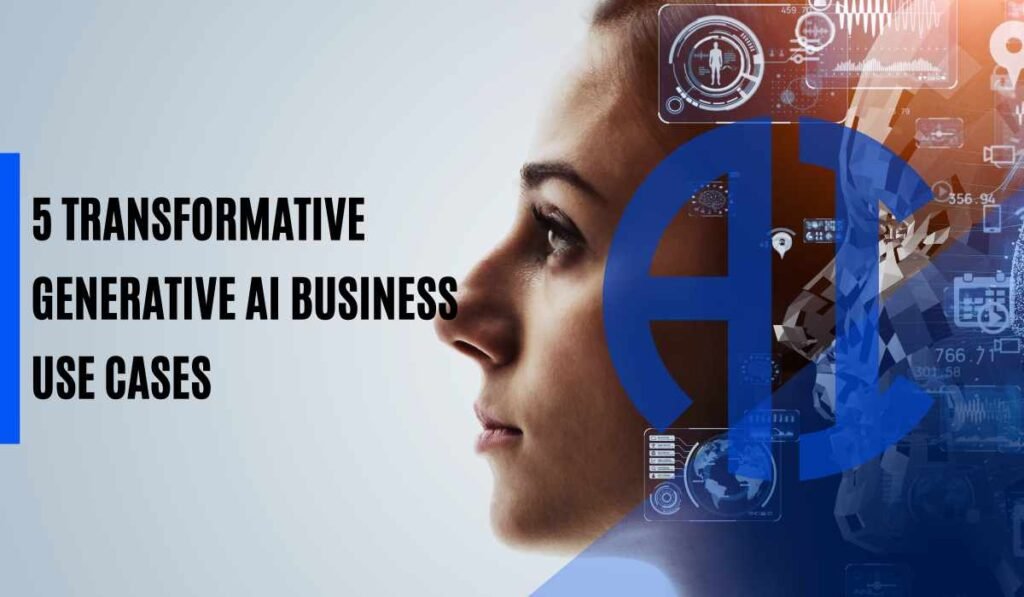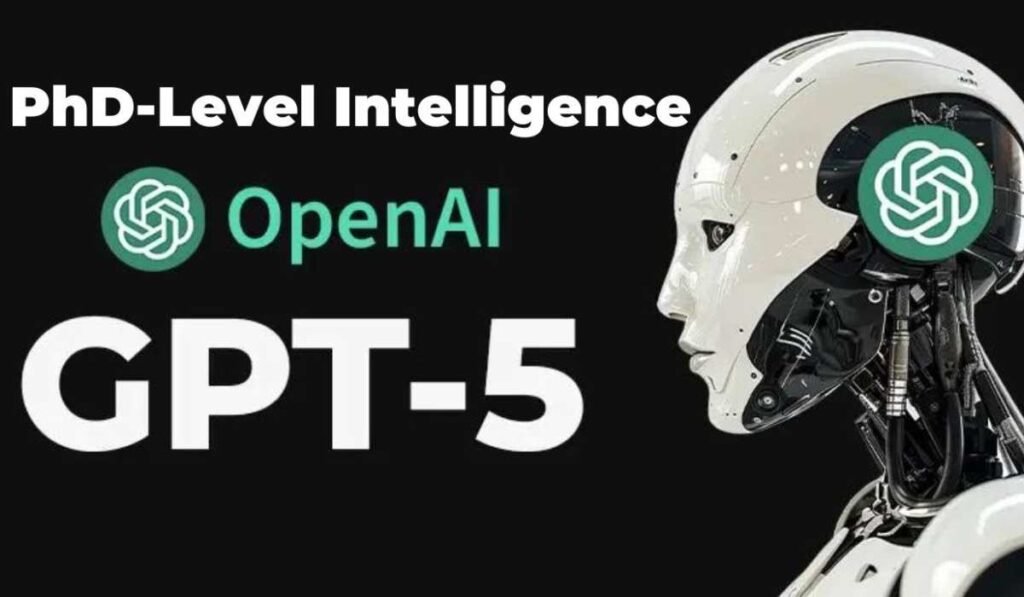In today’s fast-paced world, technological advancements are revolutionizing industries. Among these, generative AI stands out as a transformative force. But what are the real-world applications, and how can businesses harness this technology for tangible value?
In a recent panel discussion, experts from Google Cloud, Vodafone, and Bluecore shared their insights. This article explores five generative AI business use cases that are reshaping operations, enhancing customer experiences, and unlocking new opportunities. From supercharging product cataloging to decoding customer interactions at scale, discover how industry leaders leverage generative AI to solve complex challenges and drive growth.
Whether you’re a seasoned tech executive or a curious business professional, dive into these practical applications of generative AI that are reshaping the business landscape.
1. Enhanced Customer Service Operations
One of the most impactful generative AI business use cases discussed was the transformation of customer service operations. Ignacio Garcia, Global Director of Data Analytics and AI for Vodafone, shared how his company leverages generative AI to gain unprecedented insights into customer interactions.
Key Features:
- Automated call transcription and analysis
- Large-scale summarization of customer issues
- Multi-language support for global operations
Garcia explained, “We are getting all the calls that our customers are making to the call centers. We’re translating them into text. And then we’re getting a summarization of the problems.” This approach allows Vodafone to:
- Analyze approximately 50,000 calls per day
- Identify the root causes of customer issues
- Improve customer satisfaction by reducing detractors
The impact has been significant. Garcia emphasized, “It’s a complete game changer because we understand what the customers are really saying. We don’t need surveys; we get actual details on why they are calling us and can intervene.”
Business Value and Scalability
The true power of this generative AI business use case lies in its scalability. Vodafone can now:
- Deploy the solution across multiple countries
- Gain deeper insights into customer behavior
- Identify new sales opportunities
By leveraging Google Cloud’s Vertex AI platform, Vodafone has built a secure, scalable infrastructure for AI initiatives, enabling rapid experimentation and deployment of successful models globally.
2. Intelligent Product Cataloging
Another compelling generative AI business use case comes from Bluecore, a customer identification and movement platform for large enterprise retailers. Arvind Krishnan, Head of Engineering at Bluecore, shared how they’re using generative AI to standardize product catalog data in e-commerce.
Key Challenges:
- Inconsistent product naming and categorization across retailers
- Need for standardization to improve recommendations and analysis
- Difficulty in scaling traditional AI approaches
Bluecore’s Solution:
- Use Google’s product taxonomy as a standardized framework (5,500 classes and subclasses).
- Implement a two-step process:
- Use GECO to create embeddings and narrow down options.
- Pass results through Text Bison (Google’s large language model) for final classification.
Benefits of the Generative AI Approach
Krishnan highlighted several advantages:
- Improved Accuracy: The AI model achieved better results than traditional methods.
- Cost-Effectiveness: Reduced computational resources and human effort.
- Scalability: Easily adaptable across multiple retail verticals.
- Enhanced Analytics: Enables better performance analysis within product catalogs.
- Industry Insights: Allows Bluecore to deliver trends within verticals across the retail space.
This generative AI business use case demonstrates the technology’s potential to solve previously impractical problems.
3. Accelerating Drug Discovery with AlphaFold
One of the most groundbreaking generative AI business use cases is the application of AlphaFold in pharmaceutical and biotech industries. Donna Schut, leader of the technical solutions management team for generative AI at Google Cloud, explained how they operationalized this technology.
The Protein Folding Challenge
Understanding protein structures is crucial for drug development. AlphaFold, powered by a transformer model, can predict protein structures with unprecedented accuracy and speed.
Key Benefits for Pharmaceutical Companies:
- Faster experiment cycles
- Quicker insights into protein structures
- Minimized failure rates
- Accelerated drug discovery process
From Research to Production
Kevin Tsai, leader of the solution architecture team at Google Cloud, detailed the technical aspects:
- Optimized Compute: Used high IOP CPU nodes for data retrieval and NVIDIA A100 GPUs for compute-intensive stages.
- Reproducibility: Implemented Vertex Metadata for experiment tracking.
- Automation: Utilized Vertex Pipelines to streamline the process.
This generative AI business use case showcases how cutting-edge research can be transformed into practical, industry-changing applications.
4. AI-Powered Coding and Legacy System Documentation
Ignacio Garcia from Vodafone shared another innovative generative AI business use case: AI-assisted coding and legacy system documentation.
Key Applications:
- Code Generation and Optimization: AI-powered coding assistants.
- Legacy System Documentation: Using generative AI to document and understand older systems, especially those acquired through mergers and acquisitions.
Dramatic Productivity Gains
Garcia reported impressive early results: “We see productivity that is 10 to 1 in comparison with not using it.” For legacy systems, the impact is equally significant: “We’re testing how to get those systems documented. It changed our ability to run operations differently.”
This use case demonstrates how generative AI can enhance new development and revitalize older systems, potentially saving millions in modernization costs.
5. Knowledge Management and Internal Co-pilots
The final generative AI business use case involves AI in knowledge management and as internal co-pilots for employees, improving operational efficiency across various business functions.
Key Applications:
- Chatbots for Internal Support: AI-powered chatbots to assist employees.
- Co-pilots for Business Areas: AI assistants tailored to specific job functions.
- Knowledge Retrieval and Synthesis: Using AI to manage corporate knowledge bases.
Garcia emphasized the potential: “Managing knowledge well can change how our customers receive services.”
The Power of Vertex AI
All these use cases are powered by Google Cloud’s Vertex AI platform, providing the tools and infrastructure for rapid AI solution development and scaling. Garcia noted, “The tools and velocity of the plan are helping us to get real value.”
These five transformative generative AI business use cases illustrate the immense potential of this technology. From revolutionizing customer service to accelerating scientific breakthroughs, generative AI is reshaping how businesses operate and innovate.
Key Takeaways:
- Experiment and iterate rapidly.
- Invest in a solid AI foundation and infrastructure.
- Encourage organization-wide exploration of AI applications.
- Focus on use cases with measurable business impact.
- Stay adaptable in the face of rapid technological change.
By focusing on these proven generative AI business use cases, companies can position themselves at the forefront of this technological revolution, driving innovation, efficiency, and growth.
Generative AI is a type of artificial intelligence that can generate new content, insights, and solutions based on existing data. It is impacting businesses by transforming operations, enhancing customer experiences, and unlocking new opportunities across various industries.
Vodafone leverages generative AI to automate call transcription and analysis, summarize customer issues, and gain insights into customer interactions, allowing them to improve customer satisfaction and identify root causes of problems.
Bluecore uses generative AI to standardize product catalog data, which improves accuracy in product recommendations, reduces costs, enhances scalability across retail verticals, and provides better performance analytics within product catalogs.
AlphaFold helps pharmaceutical companies by predicting protein structures with high accuracy and speed, leading to faster experiment cycles, quicker insights into protein structures, and an accelerated drug discovery process.
Generative AI has been used by Vodafone for AI-assisted coding and to document legacy systems, resulting in significant productivity gains and the ability to better manage and understand older systems.
Generative AI enhances internal knowledge management through AI-powered chatbots for employee support, co-pilots tailored to specific job functions, and tools for knowledge retrieval and synthesis.
Vertex AI is Google Cloud's platform that provides the tools and infrastructure needed for rapid AI solution development and scaling, supporting various generative AI use cases across different industries.
Businesses should experiment and iterate rapidly, invest in a solid AI foundation, encourage organization-wide exploration of AI applications, focus on use cases with measurable business impact, and stay adaptable to technological changes.
Generative AI can drive growth by optimizing operations, enhancing customer interactions, creating new product opportunities, and enabling companies to make data-driven decisions faster and more efficiently.
Challenges include data privacy concerns, the need for a robust infrastructure, ensuring the accuracy of AI outputs, and the necessity of training staff to effectively utilize new AI technologies.





